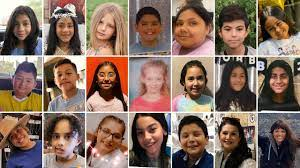The people walking in
darkness have seen a great light; on those living in the land of the shadow of
death a light has dawned.
In the
darkest days of the year, the world around us is ablaze with decorated trees,
strings of lights, and Santa and reindeer and mangers with lightbulbs inside. I look out my dining room window and see the
beautiful decorations on my neighbors’ houses shining in the night,
glistening beneath the newly fallen snow.
Our
celebration of Christmas is well lit, but those lights will fade as the season
passes into the wimter of 2023.
Isaiah talks of a light that never fades. He names the light “Everlasting Father,” and
says “Of the increase of his government and peace there will be no end.” The prophet has in mind no passing season but
an enduring change to the creation and within us.
Isaiah wrote to a people with no electric lights. The lives of Isaiah’s readers were ruled by the sun and the moon. Their nights were lit by candle and torches, but candles and torches eventually burn out. They were powerless in any lasting way against the darkness that enveloped them each evening.
Our
challenge is different; we have too much
light. We are able to generate
artificial light to drive back the immediate darkness and ease our anxieties a
bit. In Belgium, the entire highway system
is lit by bright lamps. We have cities
that glow in the night; you can see them from an airplane. Our homes and public places are made bright
by ubiquitous lights.
We think we
can disarm the darkness through our own efforts. We are mistaken.
The German
poet Johann Wolfgang van Goethe is reported to have cried at the point of
death: More light, more light! Open the window that more light may come in. Is it more light we need, or do we need a
different type of light?
All this
light we manufacture does not make our world any warmer. We live with the illusion that we are
conquering the darkness; but without warmth, light cannot sustain and nurture
and heal us.
The 20th
century Spanish write Miguel de Unamuno reflected: It is not more light we need, but more warmth. Warmth, warmth, more
warmth! We die of cold, not
darkness. It is the not the night that
kills, but the frost. All the artificial light in which we enrobe ourselves
cannot remove the chill from our world.
The cold still numbs us to God’s love and to the needs and dreams of our
neighbor.
Indifference
and fear and racism and greed and self-interest and jealousy and materialism all
chill us to the bone and paralyze us. Isaiah
writes of a light that comes as warmth, a light that disarms the numbness of our
world and the chill within us. This is a
light that not only enlightens but also reanimates the creation. Christians have named that light Jesus.
This time of
year we remind one another that Jesus is the light of the world. It is easy to forget this in the midst of all
the frantically self-manufactured artificial brightness around us. The light that Jesus brings does more than
temporarily hold the darkness at a safe distance; it warms us as well. It enables us and refreshes us and renews
us. It animates us to a new way of
living.
Hopefully it
ennobles us to become light to those around us, the kind of light that warms
and thaws the lives of others. This is
not the artificial manufactured brightness of our Christmas decorations. This
is a light that comes from above and is visited upon us in that child placed in
a manger so long ago.
In him was life, and the life was the light
of all people. The light shines in the darkness, and the darkness did not
overtake it. (John 1:4—5)
Jim
Kelsey
Executive
Minister—American Baptist Churches of New York State







